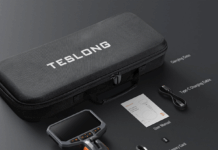Many companies use fleets of vehicles for day-to-day operations. In the logistics world or transportation industry such as taxis (e.g. Uber) and much more, tracking is important and almost mandatory.
Fleet management is a practice that involves close monitoring and managing of fleet vehicles, such as delivery trucks, service vehicles, or company cars, using advanced tech systems. Let’s look at how modern businesses are benefiting from it.
What Is Fleet Tracking?
![]()
Fleet tracking is a system used by businesses to efficiently supervise their vehicles. It is simply an innovation that facilitates the real-time monitoring of fleet vehicles. A typical tracking fleet management system gathers, processes, and transmits data such as the location of a vehicle, performance, and more. This data is stored for future use and to help provide useful insights.
One important tool in fleet tracking is the use of GPS, also known as the Global Positioning System. GPS is the technology that allows for the precise location tracking of each vehicle in a fleet. This tool provides real-time and accurate location data to aid businesses in keeping a constant eye on their assets.
What is GPS Fleet Tracking?
In fleet tracking, GPS helps to know the real-time location of vehicles in a particular fleet. The information about the precise location of vehicles is sent to a company’s server.
However, fleet tracking is not simply about locating vehicles. It provides additional information that is useful to businesses to make certain business decisions.
The data collected through fleet tracking is diverse and valuable. It includes information on vehicle speed, parked period, route data, and even driver behaviour. Advanced systems such as thingsboard.io/smart-energy can go further by monitoring engine diagnostics and providing insights into fuel use. This comprehensive data enables businesses to make informed decisions about their fleet operations.
Implementation and Considerations

Setting up fleet tracking can be a huge project for businesses, and it comes with various considerations and challenges. The different stages involved in setting up require careful planning and execution. This includes choosing the right technology and provider, properly installing tracking devices in vehicles, and training staff to use the system effectively.
Furthermore, there are other things to consider. First is privacy. It is an important topic when it comes to fleet tracking as it relates to driver monitoring. Since tracking a vehicle means tracking its driver, businesses must establish clear policies and communicate with their employees about the purpose and scope of tracking. This transparency is crucial to ensure a positive working relationship with drivers and ensure compliance with privacy regulations.
Another thing to consider is the cost involved. While fleet tracking systems offer numerous benefits, the initial cost can be quite high. Hence, businesses must weigh this cost against the anticipated benefits and long-term maintenance as well. As the field of fleet tracking keeps developing, businesses must devise a way to make it part of their operations to enjoy its services. And as seen in recent times, the tracking system keeps improving, hence it’s one of the factors to consider when deciding to adopt it or not.
Emerging Technologies in Fleet Tracking
One of the notable trends in the field of fleet tracking is the use of artificial intelligence and machine learning. Such technologies will improve the predictive systems, allowing fleet operators to predict maintenance needs and optimise accordingly for optimal results.
Also, the Internet of Things will play a crucial role in fleet tracking. With more connected devices and sensors, data collection will become even more extensive. This will facilitate real-time monitoring of many vehicle components, such as tire condition and other parameters like temperature, and much more.
How the Industry is Evolving

The fleet tracking industry is moving towards better integration. More solutions to expect will offer smooth integration with other business systems, such as managing inventory. This will provide businesses with a more holistic view of their operations and customer interactions.
As fleet tracking technologies continue to progress, companies can anticipate increased advantages. These include further improvements in operational efficiency, reduced environmental consequences through better route planning, and enhanced customer service through real-time updates.
Conclusion
Fleet tracking and monitoring are essential in modern business. They offer instant insights that help businesses to be more efficient. Also, it paves the way for more connected, data-driven decisions for businesses.
Businesses that embrace this technology can gain a competitive edge and set the stage for growth and success in a dynamic marketplace.


















